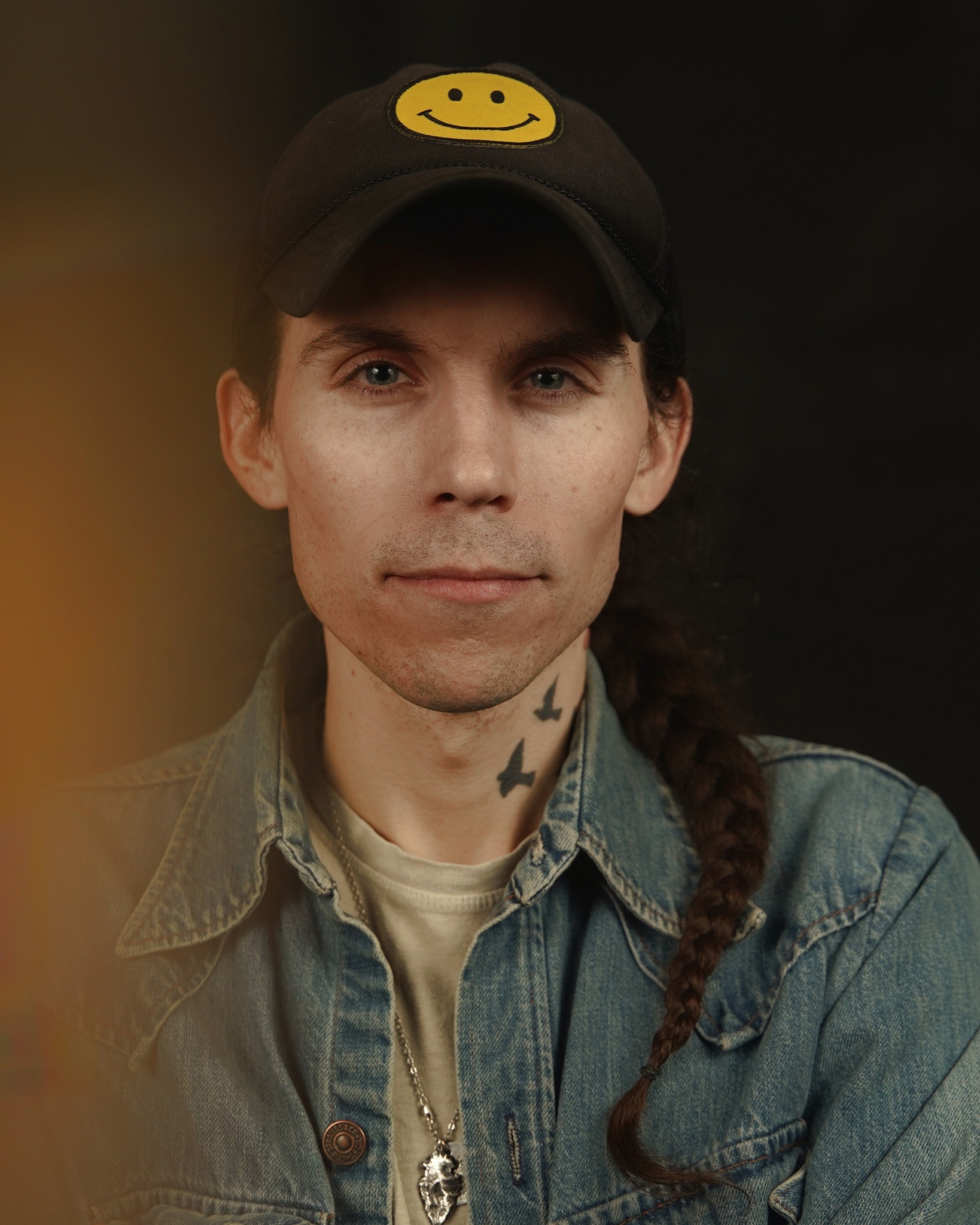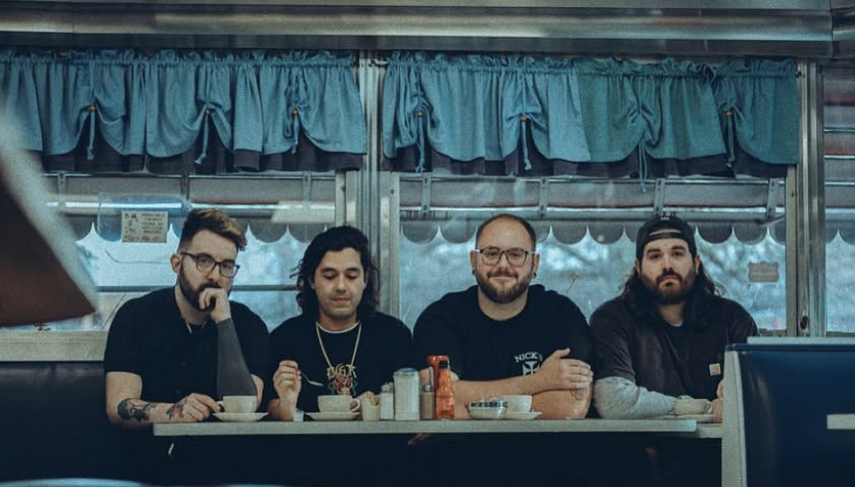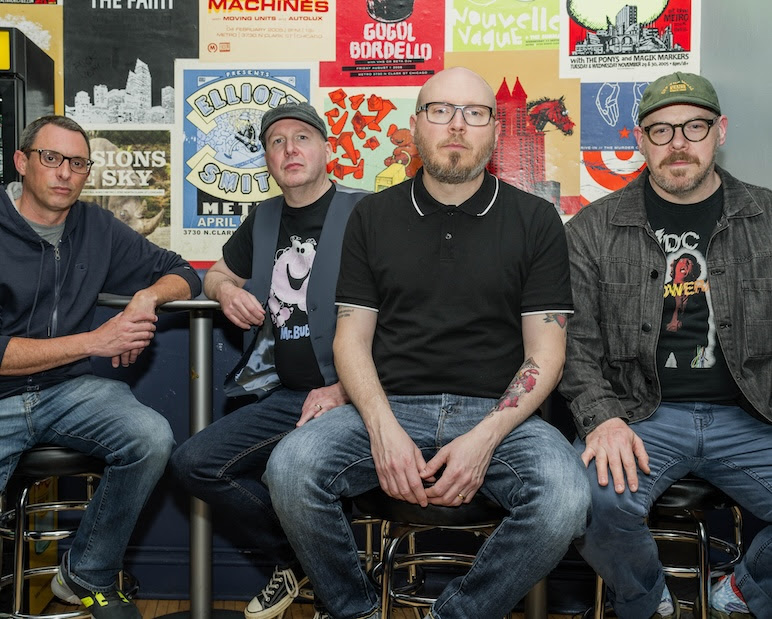
If you came to me a year and a half ago and told me that a decent handful of Americana/country artists would occupy some of the top spots on my Spotify “most played”, I’d point you to the nearest mental institution. But here we are, thanks almost solely to an equal combination of Jason Isbell and Roger Harvey.
I’m pretty close-minded when it comes to my music choice; I know what I like and I rarely deviate. Guys like Isbell and Harvey, and others like Austin Lucas and Northcote have scratched a musical itch of mine that completely blindsided me. Harvey’s one of those artists whose songwriting I was totally enamored by, and after randomly seeing him open for Gregor Barnett of the Menzingers one night, I bordered on obsession and found all the music I could from the guy. So I was thrilled, to say the least, when I started seeing posts around the New Year hinting at new music.
I’ve pretty well exhausted Harvey’s catalog up to this point, so I was anxious to get my hands on more of the honest, hopeful, simplistic, yet captivating music that drew me in in the first place. Well Roger Harvey’s new EP Cowtown lived up to, and succeeded, the anticipation I had for it. I think the man himself described this new release best in one of his monthly newsletters titled Rog Sez: “On March 17th, I’m releasing new music. Cowtown, 3-songs about where I come from and the possibility of a better world. I’ve been writing a lot about this lately.”
Getting to do this interview was extremely fulfilling. I had been eager to pick the mind of Harvey, whose lyrics are poetic in nature, and are able to convey powerful stances on current issues, but in a simplistic way that embodies hope and positivity. After exchanging a handful of emails, I’ve concluded that Harvey is wise beyond his years. I envy the hell out of both his hopeful outlook on the world, as well as his ability to embody that through word and song.
We talk about all kinds of great stuff, and on more than one occasion I had to stop and process his responses because of how wise and well-versed my questions were answered. Although this one was done over email rather than Zoom, I can still confirm that I had a blast doing this. Below you’ll find links to the new release, links to a couple other notable songs mentioned in our interview, as well as tour dates and whatever else can help get you acquainted with one of my current favorite artists. As always, thanks so much for reading this far. Cheers!
Featured image credit: @Cowtownchad
(Editor’s note: The following has been edited and condensed for clarity’s sake because a good chunk of this interview was just two guys shooting the shit.)
Dying Scene (Nathan Kernell NastyNate): Tell me a little about the three songs you’re releasing Friday. I know with “Two Coyotes,” one of my personal favorites of yours, featured Rozwell kid guitarist Adam Meisterhans, of whom I’m a huge fan of. Are there any guests featured on these new ones?
Roger Harvey: I recorded these 3 songs outside of Philly at a studio called Gradwell House and then passed them down to Justin Francis in Nashville for finalizing. My friend Mike ‘Slo-Mo’ Brenner pushed me towards and led this session. We had been playing these songs live on the road at shows last year and he wanted to get them down together. Mike is best known for his work with Jason Molina but has been a part of so much great music. I admire his attitude and work ethic and love collaborating with him. Working as a solo artist can be trying and having good people in your corner to push you in the right direction is essential. I’m lucky to have so many good people in mine. I asked Mike once on a long drive what kept him going in music through all the years and he responded: “Striving towards excellence. It’s the one thing that never goes out of style.” I think of that often.
In our emails you mentioned these being a part of a couple records hopefully coming out later this year. Any details on those that you’re ready to reveal? Possible release dates? Are those going to include what’s on your most recent release, Last Prisoner, as well as this upcoming one?
I recently finished a 14-song record in Fort Worth, Texas with my friend Simon Flory of traditional folk songs. We rewrote many of them to modernize & convey the lasting meaning of the songs in our current context. We’re finalizing the masters and other conceptual pieces and working to release it later this year. Additionally, I have a record of songs about where I grew up in Pennsylvania that I’ll be recording this spring. Many of the singles I’ve released fit in with that narrative and I’ve been on the fence of wanting to re-introduce singles I’ve released on that record or if I just want to move forward with new songs. I’m sitting on so many songs after the past few years of slowness and have been reckoning with a lot of big change in my personal life that has kept me writing. I’d like to get them all down regardless just need to conclude what tells the story I’m after the most effectively.
Starting with the opening track Cowtown, the message you’re conveying seems pretty clear, and I find my understanding of the song to be pretty relatable to the 5 years I spent living in a small East Tennessee town. Coming from your end, what message are you conveying or what story are you telling with this one? Is there one particular town or experience you’re referring to when you sing “nothing to do here but drink and fight”?
Like most things I write, it is about a specific place to me but I also recognize that it could be relatable to really anywhere. To me, it’s about where I was raised but I’ve been incredibly lucky in my life, through music, to have gotten out and seen a lot of the world and with that comes the understanding that our struggles and experiences as people are often more similar than different. I hope people can relate to the feeling in the song no matter where they came from. You’re only trapped here, if you choose to be.
Correct me if I’m wrong, but “Talkin’ Hard Line” seems less like a story you’re telling and more like ideal circumstances where love brings us together, and the song seems hopeful in that this can be achieved. In a time when people seem so divided and harboring so much hatred, whether it be politically or otherwise, is that the direction you had in mind for listeners to perceive this?
That’s exactly what I’m talking about in this song. It’s a hard subject in today’s world, specifically in today’s America, because of how polarized everything has become. Hate doesn’t deserve a pass, but empathy is important and love is the only way out. Figuring out what that looks like in practice when our own families & friends get so divided and people’s ideas get coopted by grifters who play on their deepest fears is something else completely, but if we can learn to lead with love I think that that’s a start.
Walk me through how you arrived at choosing to cover Susanna Clark’s “Come From the Heart.” Even though I’ve been in Nashville a while, I’m still not super familiar with country music, so I didn’t immediately realize this was a cover. I think that’s interesting though because you made the song your own and the song couldn’t be more fitting for you based on your prior releases. Although the original sounds in no way like punk, I think the lyrical content and its focus upon honesty makes it very similar. Reminds me a lot of Tim Barry’s “40 Miler” when he sings “music should sound like escape not rent”.
There are so many songs that say what “Come From The Heart” says. I love the simplicity of it. I struggle with that as a songwriter and often have to remind myself that simple songs are often the best ones. Conveying a message like people talk and feel is what gives music power. Things don’t have to be complex to be deep and to resonate. I love this song & specifically fell in love with Guy Clark’s version on Old Friends. Susanna Clark was an incredible artist and had such a unique impact on the world around her through living the way she did. From writing songs like this to painting the cover of Willie Nelson’s “Stardust.” I admire her creativity.
Although it’s not on this upcoming EP, I did want to talk about “Weird Hill to Die On” because it seems more applicable than ever in today’s climate. I saw you in Nashville when you played with Gregor Barnett and you explained it specifically referencing the incident at the Capitol, but could you kind of reiterate its connection to that event, as well as its overall meaning? It seemed like you changed it up a bit with this one and sang from the point of view of somebody who’s bought into that nonsense, was there reasoning behind that?
I wrote “Weird Hill To Die On” in the aftermath of January 6th as a way of processing what was and is going on in our country. It strange to have conspiratorial thinking move from the fringes to the mainstream and it seems that we haven’t really figured out a way to reckon with it as a society. It can be tiring to navigate a divided world, but our fatigue of that doesn’t change the fact that this is our world. I’m often at odds with how to move through it all. “Talkin’ Hard Line” is about that too but “Weird Hill” attempts to bend the perspective from the other side.
I wanna talk some about influences because at times, I feel like I can pick out a few key ones that I think heavily influence your sound, and other times I feel like I have no idea. Such storytellers as Woody Guthrie and John Prine, and even Springsteen seem to be some obvious ones. Feel free to correct me on those if I’m wrong, but who else would you cite as strongly influencing you? One of the things I love about listening to your music is your lyrics develop in a way that a writer’s or poet’s might. Are there any non-musician writers that influenced you in terms of storytelling?
I have a lot of heroes. I love music & words. The things I’ve always been most drawn to are ideas and actions. People I can look to as I attempt to draw my roadmap to get to how I’m trying to grow. I like people that write like people talk. Woody Guthrie was my first songwriting hero. I’m a huge Willie Nelson fan too. I love Carl Sandberg’s writing. [Sandberg’s Poem] The People, Yes.
I know you’ve done some work with Tim Barry, I kind of put you two in the same category of elite storytellers through song. Musicians of that nature seem to be a dying breed, did the lyrical storytelling come naturally for you from the beginning or did you strive towards writing in that way? Do you think there are any similarities in either influences or upbringing between you and a guy like Tim Barry that fostered that type of songwriting?
Thank you! I’ve always been drawn towards the kind of music that reflects the way I think and process the world around me. I’m a deep dude and the circumstances of my upbringing are likely responsible for that way of thinking from an early age. I think that’s what drew me towards folk music when I was younger. Tim has played a big role in my life as a friend and songwriting mentor. Tim and I have spent a lot of time together on and off the road and I do think there are similarities and reasons why we connected and continue to relate to one another the way we do. We share a similar mindset on a lot of things. I love storytelling through song and think the most important thing is that it’s told truthfully from its perspective, no matter where it comes from. There are so many important stories being told all the time and it’s important to listen to as many as you can.
How did you get connected with the punk rock audience? Your sound is more country and Americana than punk, while your lyrics fit right in. Were you a punk fan growing up and made the shift to this genre later on, or was it your lyrics that drew in a punk-leaning fan base, or was it something else? I always find the answer to this question interesting, Cory Branan and Ben Nichols are two that I think fall into the same realm.
I grew up as an outsider in a small town and fell in with a small group of punk rockers. At that time punk rock was the most tangible way to express what I was feeling and experiencing. It empowered me. I started touring selling t-shirts for a punk band before I was a teenager and that connected me with life on the road and to so many good people that I still keep close today. I learned a lot from punk rock that I’ll always carry with me, but always felt more drawn to folk songs. I discovered folk singers like Woody Guthrie through punk rock. I connect with the ideals of punk rock and the expression of folk music. I think they have a lot in common.
Country and punk seem on the surface to be two very different genres. And by country I mean traditional country, not that mainstream pop bullshit that’s popular now. What would you say are some similarities between the two? For me, honest lyrics seems to be the biggest one.
Struggle and progress. There is a struggle in it all. That’s what I wrote about in “Cowtown.” Being somewhere, going nowhere and keeping the faith that progress can be made. Punk rock to me has always embodied hope. There is a longing to it for something better. My favorite country music is about people’s struggle. Acknowledging hardship and moving through it. A lot of songs I love are just an acknowledgment of the struggles we experience as people. The power of music is when we share in the acknowledgment of the hardship. Recognizing that we aren’t alone through sharing stories is where we find hope. Finding hope is where we get a chance to try.
Shows!!!
May 06 in Cambridge, MA at The Middle East Restaurant and Nightclub (Dying Scene will be there – come say hi!)
May 19 in Atlanta, GA at 529 w/ Tim Barry, Lee Bains and the Glory Fires
May 20 in Carrboro, NC at Cat’s Cradle w/ Tim Barry, Lee Bains and the Glory Fires




